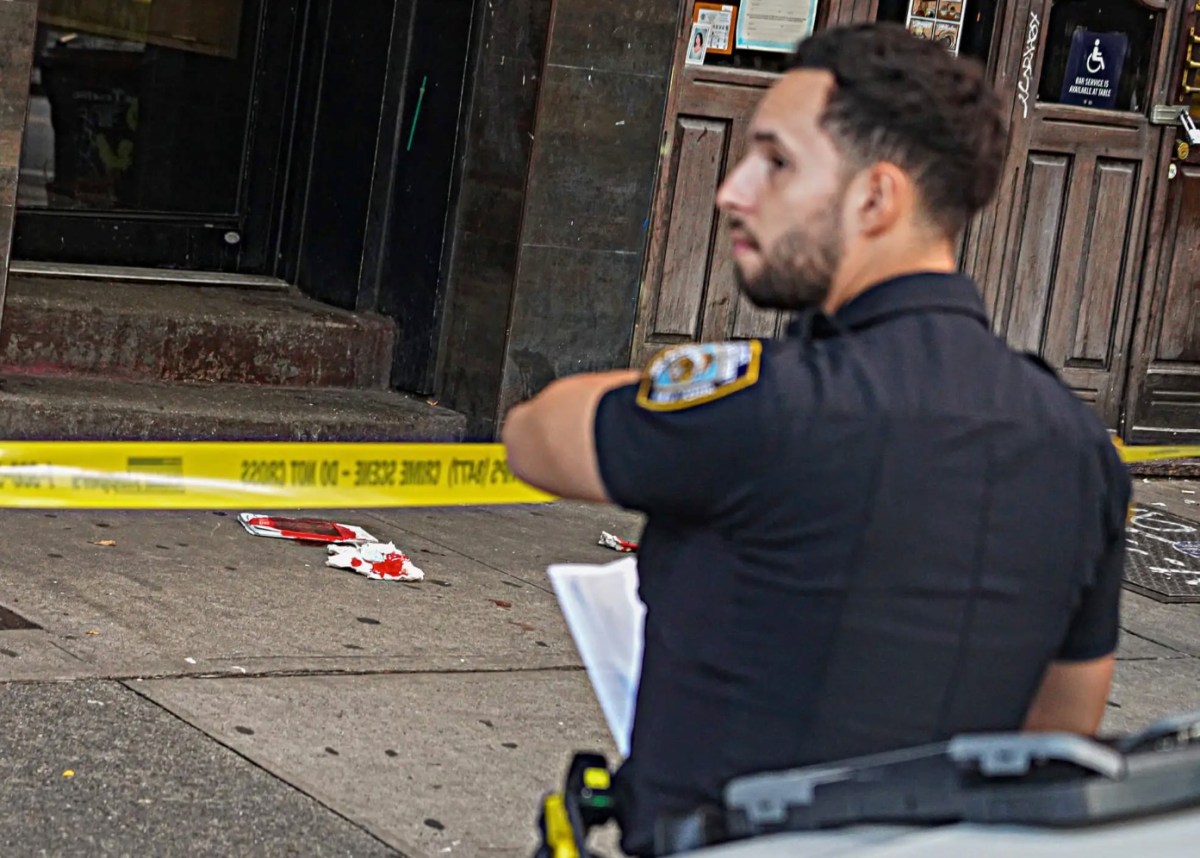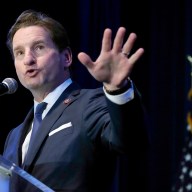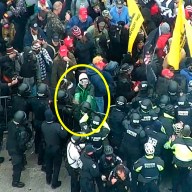 Jake Gyllenhaal plays a man who finds someone who looks exactly like him in “Enemy.”
Jake Gyllenhaal plays a man who finds someone who looks exactly like him in “Enemy.”
Credit: Getty Images
In “Enemy,” Jake Gyllenhaal does what only a select few have done: act opposite himself. This puts him in the company of Jeremy Irons (“Dead Ringers”), Nicolas Cage (“Adaptation”), Sam Rockwell (“Moon”) — plus Jean-Claude Van Damme (“Double Impact”), Adam Sandler (“Jack and Jill”) and, in two adaptations of “The Parent Trap,” Hayley Mills and Lindsay Lohan. But doing the film wasn’t about the challenge.
“What attracted me to it was the concept, this idea of somebody struggling with themselves. It was never about playing both parts,” Gyllenhaal says. In “Enemy,” based on Jose Saramago’s novel “The Double,” he plays a depressed professor who discovers there’s an underemployed actor who looks just like him, right down to the same scar. (This film is not to be confused with its own doppelganger, the forthcoming adaptation of Fyodor Dostoevsky’s novel also called “The Double,” which boasts two Jesse Eisenbergs.)
In fact, for Gyllenhaal it was more about another relationship: the one between him and his director, Denis Villeneuve. “I found him fascinating and I really wanted to make a relationship with someone where we could explore, and he wanted to. He said, ‘I want to make a movie where we explore the actor and we go to places we didn’t expect to.’ I had no idea what it would entail.” (The two immediately reunited for “Prisoners,” which was released in the U.S. first, though both played the Toronto Film Festival.)
The result isn’t a “Twilight Zone” episode, though it shares similarities with “Shatterday,” a Harlan Ellison-penned episode from the 1980s iteration in which pre-“Moonlighting” Bruce Willis calls home from a bar and winds up talking to a nicer version of himself. Even before the two Jakes switch lives, things have gotten very strange.
“There are millions of ways of interpreting it,” he says, “but the journey was very simple for Denis and I. He explained it to me from the beginning that it’s a movie about committing oneself to an intimate relationship. What is intimacy? What is sexuality? And what exists in the male psyche? But ultimately it’s about getting back to oneself.”
Still, however he approached the film, Jake Gyllenhaal still had to act with Jake Gyllenhaal. “It was humbling to work with myself and realize my own limitations. My rule is I always want to work with an actor who’s more talented than me, so that you’re better. Unfortunately, that wasn’t the case in this situation,” he says, chuckling. “You’re listening to your own coverage played back — to the things you think you’re communicating and what you really are [communicating].”
It was, of course, most challenging from a technical perspective. “We tried it with another actor, who’s wonderful and talented. But it felt strange. Like [what he was doing], those weren’t my choices,” he says. He wound up acting opposite his own line readings played back. “You do enough movies and you get used to a process. But you never think about playing both sides of a scene.”
When acting in a lit adaptation, one runs into a problem: Do you read the source, which is bound to be changed, sometimes gruesomely? Or do you stick to the script? For Gyllenhaal, it’s the latter. “The script has to become the bible. If the book becomes the bible then it becomes very confusing, because what you imagine is not what’s there. You have to use the blueprint that’s given to you,” he says. “I very consciously didn’t [read the book] and I saw other people getting confused, saying, ‘Oh, but the book says…’ And I thought that would to lead us in a dangerous direction.” So he didn’t read the book, and still hasn’t — “even though I’m a huge Jose Saramago fan.”
Follow Matt Prigge on Twitter @mattprigge
















